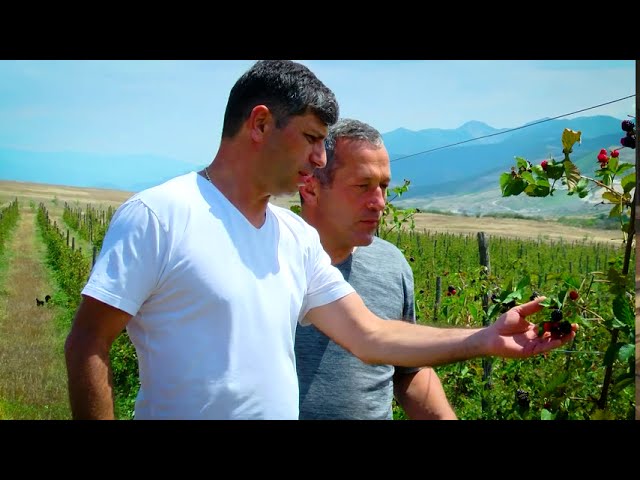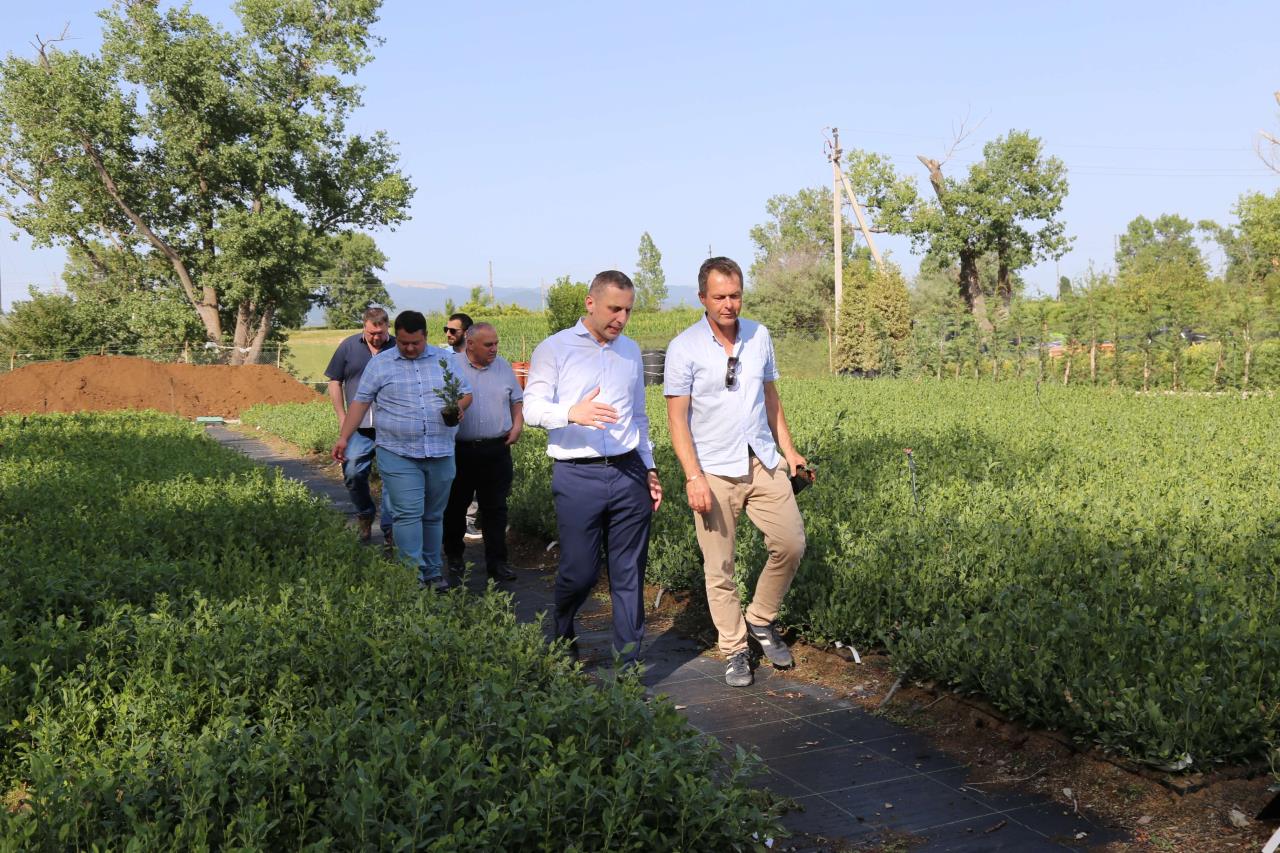
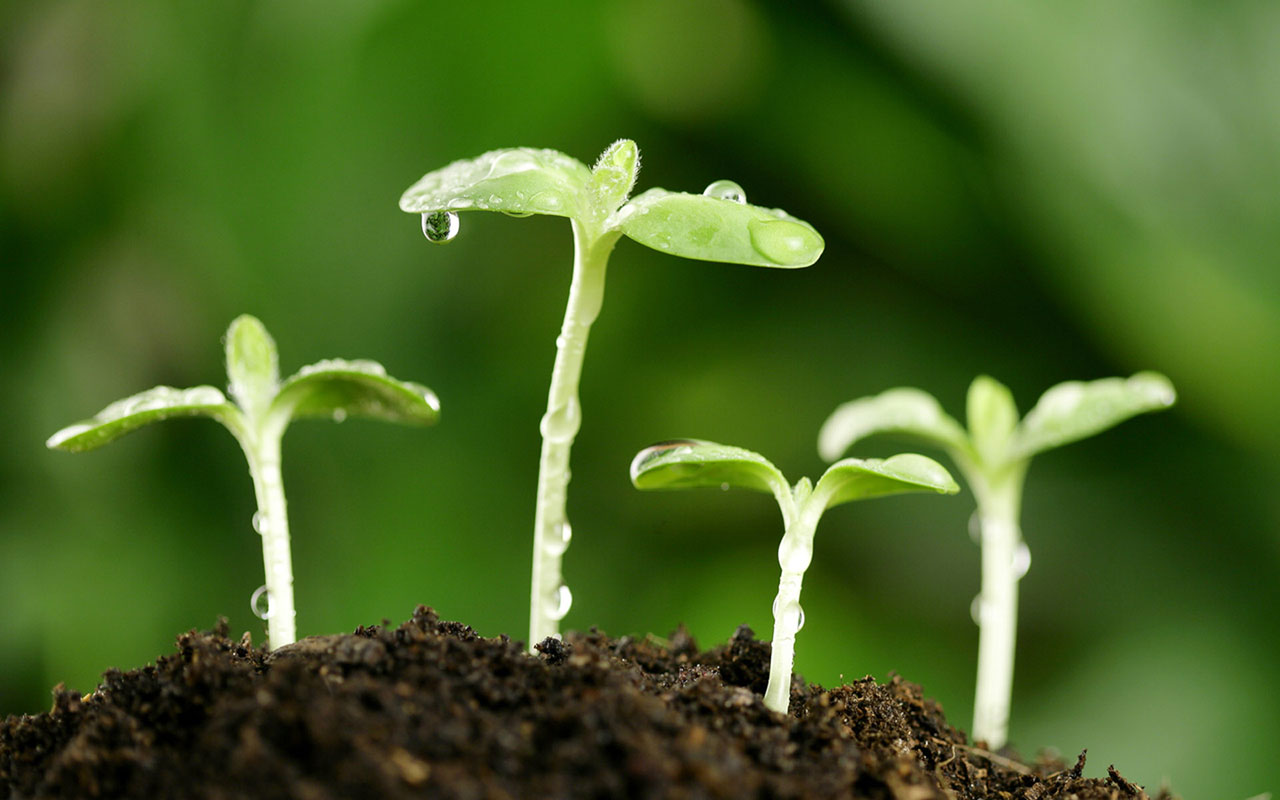
Gardens component
|
Receiving applications for the Gardens component is over Garden planting period - until April 30, 2026 |
| The deadline for the expression of interest by local qualified nurseries is the period from April to September, 2026 (inclusive) |
| Within the gardens component, the amount of co-financing of the agency, both in the case of the purchase of seedlings from the local nursery, as well as in the case of import, will be given only after planting the garden and arranging the drip irrigation system |
To participate in the Gardens component, you must register/authorize on the website.
See below for detailed information on the steps required to receive co-financing.
We offer co-financing of gardens to those interested in cultivating perennial crops. The potential for growing perennial crops varies by region of the country. Therefore, according to the regions, perennial crops are distributed as follows:
Kakheti: peaches, plums, tkemali, cherries, olives, cherries, apricots, raspberries, blackberries, persimmons, pomegranate, kiwi, figs, walnuts, almonds, hazelnuts, pistachios, apples, pears, quinces.
Shida Kartli: apricots, almonds, dogwood, walnuts, peaches, plums, tkemali, cherries, currants, hazelnuts, raspberries, apples, pears, cherries, blackberries, quince, nuts.
Kvemo Kartli: apples, peach, plums, tkemali, cherries, apricots, currants, raspberries,walnuts, almonds, pomegranate, pears, sour Cherries, persimmon, blackberries, quince, figs, Nuts, Olives (only in the districts of Adabani and Marneuli),Phistacio
Mtskheta - Mtianeti: almond, peach, plum, wild plum, sour cherry, currant, gooseberries, raspberries, walnut, apple, pear, cherry, blackberry, quince, nuts.
Samtskhe - Javakheti: peach, plum, wild plum, sour cherry, currant, gooseberries, raspberries, walnut, apple, pear, cherry, blackberry, quince.
Imereti: blueberry, blackberry, plum, wild plum, sweet cherry, currant, gooseberries, raspberries, persimmon, walnut, nuts, apple, pear, cherry,fig.
Racha - Lechkhumi and Lower Svaneti: plum, wild plum, sour cherry,walnut, persimmon,nuts, apple, cherry, pear, raspberry, blackberry, quince,fig.
Samegrelo and Upper Svaneti: walnut, apple, tangerine, orange, lemon, plums,wild plum, blueberries,persimmons,kiwi,feijoa,nuts, pears, cherry, raspberry, blackberry, fig.
Guria: blackberry,raspberry, tangerine, orange, lemon, plum, tkemali, cherry, blueberry, persimmon, kiwi, feijoa, hazelnuts, apples, pears, cherries, walnuts, figs, bay leaf.
Adjara: walnut, tangerine, orange, lemon, plum, wild plum, sweet cherry, blueberries, persimmon, kiwi, feijoa, nuts, apple, raspberry, blackberry, pear, hazelnut, sour cherry,fig.
Co-financing of the gardens and promotion of perennial crops will apply to all municipalities and self-governing cities.
Financial assistance:
Financial assistance includes the financial support both for purchase of seedlings and the arrangement of a modern drip irrigation system.
A maximum of 70% of purchased seedlings will be funded. As for the cooperatives with agricultural status, no more than 80% will be funded in the case of villages and highland settlements adjacent to the dividing line.
Both locally purchased and imported seedlings will be subject to co-financing. At the same time, the maximum co-financing amount is established for each seedling.
The maximum funding for a drip irrigation system on a plot of land is 50%, but not more than 1,250 GEL per 0.5 hectare. For agricultural cooperatives, a maximum of 60% in the case of villages adjacent to the dividing line and highland settlements, but not more than 1,500 GEL per 0.5 ha.
Note: Not funded unforseen expenses or other expenses; planned accumulation; Overhead costs)
Note: Not funded unforseen expenses or other expenses; planned accumulation; Overhead costs)
Technical assistance:
The co-financing program participants, if desired, will be trained in the following issues:
- Practical training in pruning of plants in the cultivated garden;
- Introduction of integrated plant protection systems - IPM;
- Ensuring garden watering and plant nutrition.
Limitations:
Any individual interested in growing perennial crops, as well as those who could not cultivate new areas due to lack of financial resources, can participate in the Garden Program.
A beneficiary may be:
- a natural person or a sole proprietor who is a citizen of Georgia;
- an enterprise incorporated in Georgia, including a registered agricultural cooperative.
The enterprise, in which the state directly or indirectly owns shares or stocks, may not be the beneficiary of the gardens’ component.
For obtaining financial and technical assistance determined under the gardens’ component:
- A beneficiary must be a person of full legal age;
- A beneficiary must own an agricultural plot of land that is registered in the National Agency of Public Registry with one cadastral code as his/her property, or must have obtained an agricultural plot of land under a long-term leasing from the state/Local self-government body / the Autonomous Republic of Abkhazia / Adjara /JSC "Partnership Fund"/ From a person / legal entity (the remaining period of the leasing must be at least 10 years and the leasing agreement must be registered with the National Agency of Public Registry).
The requirement on the leasing relationship with the state determined above shall not apply, if in case of participation of the Patriarchate of Georgia in the project it establishes the enterprise(s) and gives it a plot of land in ownership or under a long-term leasing (the remaining period of the leasing must be at least 10 years).
It is possible to grow pistachio orchards in Guria, Adjara and Samegrelo without setting up a drip irrigation system. Within the program framework, in gardens established where a drip irrigation system has not been installed, it is possible to finance the installation of a drip irrigation system based on the invoice or contract (in Georgian / notarized translation in Georgian) of the irrigation system to be purchased, in accordance with the limit set within the component.
One person can participate in the program several times, but the total funding received must not exceed 500,000 GEL, and in the case of blueberries, 750,000 GEL and the garden area must not exceed 50 hectares.
Under the gardens component a single beneficiary is allowed to arrange perennial gardens on the aria Of min. 0.5 and max. 50 hectares.
The co-financing capacity of 0,5 ha shall not exceed GEL 5,000. The maximum limit for financing blueberry crops at 0.5 ha is 7,500 GEL.
Under the gardens’ component, first of all, 70% of the cost of purchased saplings will be financed, and then the drip irrigation system will be financed from the remaining amount. In case of cooperatives with agricultural status, villages accross demarcaion line and highland settlements - of the cost of seedlings to be purchased, and the remaining difference for arrangement drip irrigation systems.
Preconditions:
The plot, which is planned to be the future garden, should be cultivated no less than 40 centimeters deep.
The plot of land must be supplied with permanent water source, that means existence of the lake, river or river channel within maximum 500 meters from the external perimeter of the land, or the existence of a well or a borehole on the territory of the plot of land.
Note: If the land is provided with water, Regional Service of the Regional Relations Department of the Agency or the Ministry of Agriculture of the Autonomous Republic of Adjara shall describe the factual circumstances on the spot, on the basis of which the Center confirms or denies the water supply in writing.
The plot of land, which is intended for the gardens, must not be under lien.
The application must include the minimum amount of certain plants that must be planted on 1 hectare.
Characteristics of Seedlings and Co-Financing Limits:
Seedlings must be purchased from local qualified nurseries selected under the "Plant the Future" program or through their importation.
Imports are allowed only from the USA/EU/United Kingdom countries (excluding the Polish company Szkolka drzew i krzewow ozdobnych) or nurseries from other countries approved by the "Scientific-Research Center of Agriculture."
Check the list of Serbian nurseries.
Check the list of Belarusian nurseries.
Check the list of Turkish nurseries.
Walnut seedlings obtained from nurseries in Turkey and seedlings imported from the following nurseries are not financed under the component: Neknari İç ve Dış Ticaret Ltd. Şti.
When purchasing seedlings, the farmer may transfer the co-payment amount (only that part of the invoiced value which, in case of contract execution, is not co-financed by the agency) to the seedling supplier in full or in part before and/or after submitting the application to the agency, but no more than 12 months in advance.
The minimum allowable number of seedlings is based on 1 hectare.
Stages
1. Benficiaries should apply to a laboratory to take soil samples and carry out their laboratory analysis. You can apply to the following laboratories:
-
LLC Adam Beridze Soil, Food, and Plant Integrated Protection Diagnostic Center "Anaseuli"
Address: Ozurgeti, Anaseuli, Meicneerebis St. #9
Phone: +995 551 633 303, +995 599 928 761
Email: agroculture.ge@gmail.com - Multitest – a chemical laboratory of food and fossils testing
Address: №13, Didgori str., village Dighomi, Tbilisi, Tel: 214 48 48; E-mail: multitest@wanex.net - Georgian Agrarian University H. Ferry Ecological Agriculture and Nature Protection Laboratory
Address: №240, David Aghmashenebeli Ave, Tbilisi Tel: 591 67 68 58 ; 577 11 20 64 ; E-mail: t.urushadze@agruni.edu.ge - LEPL Georgian Technical University "Agroecological Scientific-Diagnostic and Examination Laboratory"
Address: Tbilisi,D.Guramishvili av. N17, E-mail: likaaptsiauri77@gmail.com ; Tel: 577 72 74 07 - LLC Quality Lab - LLC Quality Lab (S/C: 406097236)
Address: Georgia, Tbilisi, Tsereteli Ave. #95a, Tel: +995 32 214 70 20; 596 830 830 , e-mail: info@qlab.ge , website: www.qlab.ge - G.Natadze Sanitation, Hygiene and Medical Ecology Scientific-Research Institute
Address: Georgia, Tbilisi, Didube,Uznadze St., No. 78, Tel.: 2955366; 2961485 e-mail: info@hygiene.ge website: www.hygiene.ge
A laboratory employee will take samples on site and make their laboratory analysis (the list of necessary analysis to be made)
2. To determine the compatibility of soil with the intended crops for cultivation, you should submit an application to the LEPL "Scientific-Research Center of Agriculture" (the application must specify all crops intended for planting in the orchard) along with laboratory analysis results (a sample application form can be downloaded here).
Note: Based on the size of the plot for cultivation, the beneficiary must submit soil analyses to the center for an area proportional to 5-7 hectares.
Based on the laboratory analysis results, the LEPL "Scientific-Research Center of Agriculture" will determine the compatibility of the soil with the crops specified in your application.
You should then contact the regional service of the Regional Relations Department of the agency for the confirmation of land preparation (a sample application form can be downloaded here).
A representative from your region’s regional service will visit your land plot to verify whether it has been prepared to a depth of at least 40 cm and, if necessary, whether it is equipped with a water supply/source. If the land meets the land preparation criteria (land preparation criteria), the regional service representative will issue an appropriate certificate in the form of a conclusion.
Note: To obtain the certificate, you must provide the regional service representative with a situational map of the land where the orchard is planned to be established.
Note: The conclusion on land development must be issued no more than 5 months before the potential beneficiary submits the application to the agency.
3. To complete the application, you must register on the website. Fill in the required fields to complete the registration process.
Mandatory fields for account registration:
- First name, last name
- Date of birth
- Personal identification number
- Mobile phone number
- Email address
- Password
After filling out the registration form, click the “Register” button to finalize the process. For each subsequent login, enter your email/personal ID number and password to access your personal dashboard on the website.
To upload an application you must log in to the website’s management dashboard, click on the "New Application" button, fill out the electronic application form and save it by clicking “Save Application.” The submitted application will appear on the "My Applications" page, where you need to upload the required documentation.
Invoice requirements (for irrigation systems)
On the application management page, click the "Submit Application" button. By clicking it, you agree to the program's terms and conditions ("I Agree").
The completed application and accompanying documents will be registered in the system with an automatically assigned registration number.
Once you agree to submit the application, further edits will not be possible.
If the electronic application and submitted documents comply with the program's terms, the application will be approved. After approval, a co-financing agreement will be signed.
Agricultural cooperatives participating in the program will be reimbursed for the cost of sprayers purchased after establishing a perennial orchard, based on the submitted invoice and/or relevant document. However, the reimbursement amount cannot exceed GEL 5,000.
Complete the standard application form (application form)
Submit the completed application and documentation to the agency or the regional office in your region (list of required documents) "What should an invoice contain? invoice requirements for sprayers)"
If the application and submitted documents meet the program's terms, a contract will be signed for the funding/reimbursement of the sprayer’s cost.
Power of Attorney Form (for a third party)
Power of Attorney Form (among co-owners of land)
For the purpose of confirming the fulfillment of the obligations stipulated by the contract, the beneficiary is obliged to submit a conclusion from the LEPL – Levan Samkharauli National Forensics Bureau or a report issued by persons registered in the Public Registry who have been granted the authority to conduct mandatory audits as a result of the quality management system monitoring carried out by the Service.
The conclusion must describe the methodology of its preparation and must be accompanied by photographic material of the planted orchard, the installed irrigation system, and the materials (in cases where the contract provides for such purpose). The fulfillment of the purpose is confirmed by the auditor through on-site inspection, and the conclusion must be accompanied by copies of the expenditure-confirming documentation used in its preparation, and, if necessary, a customs declaration.
Note: The installation of the irrigation system is recommended before planting seedlings or within a maximum period of one month after planting.
News


Program "Business Post" - blueberry culture
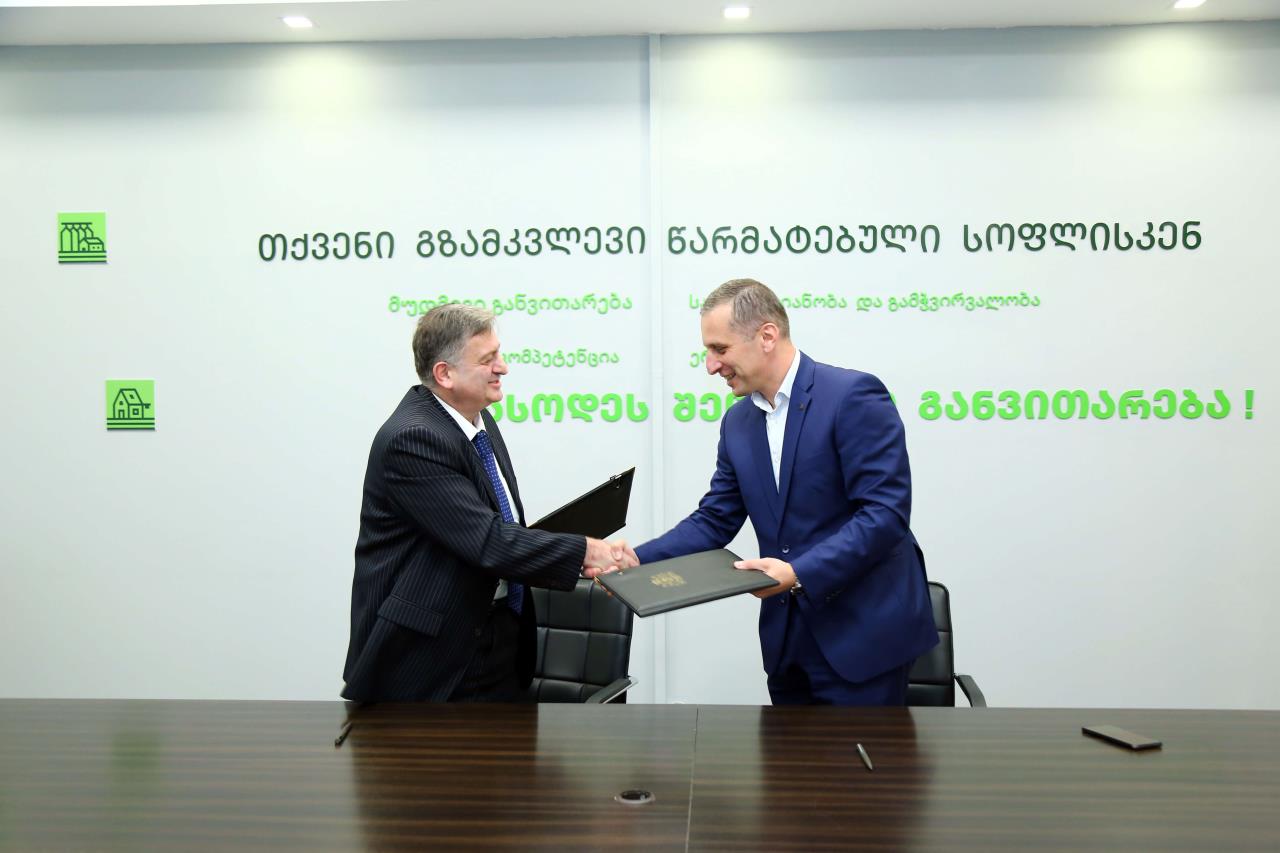
IDPs from Abkhazia will receive an additional benefit in the state program "Introduce the Future".
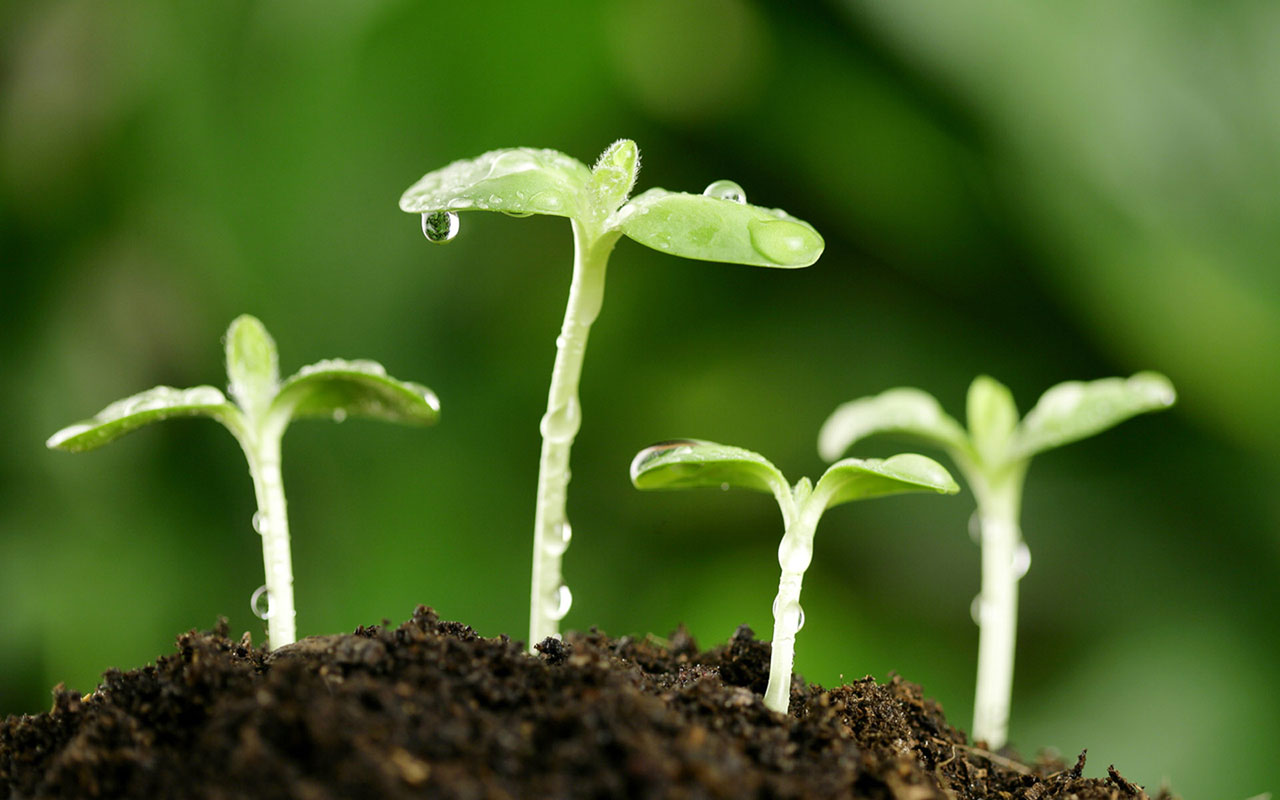
In 2023, the budget of the state program "Plant the Furture" will increase
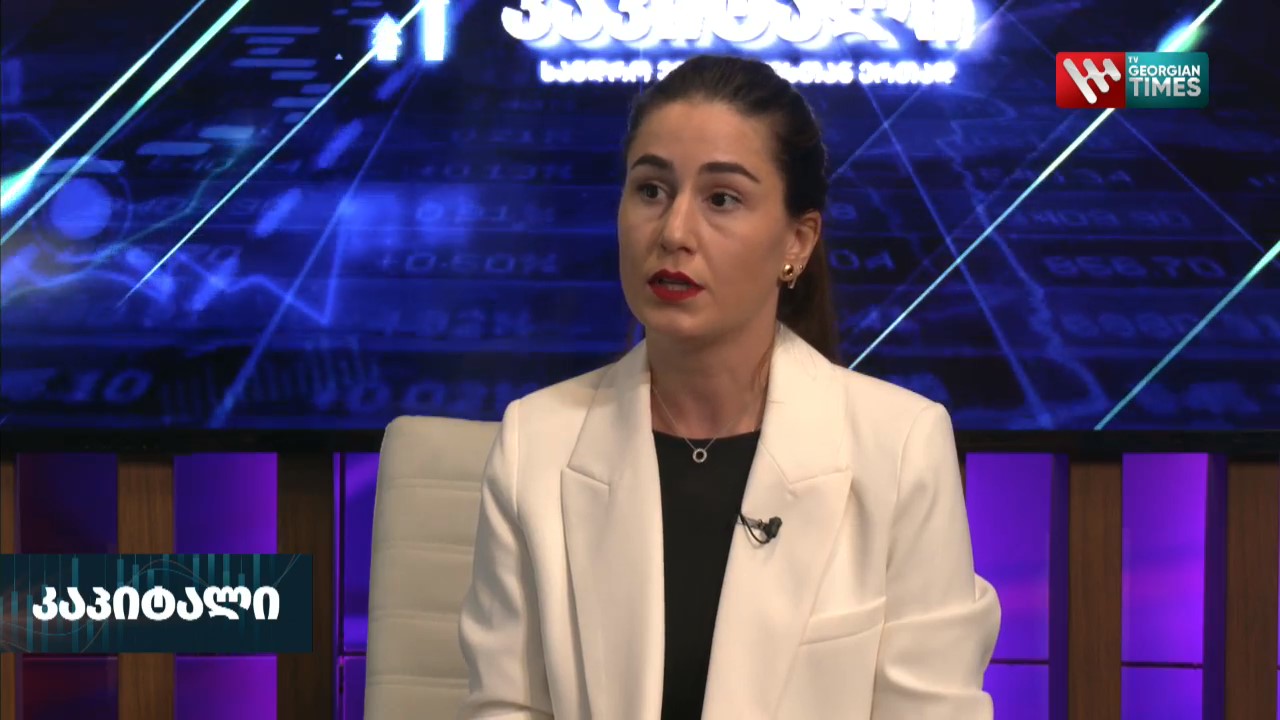
"Plant the future" - program "Capital"
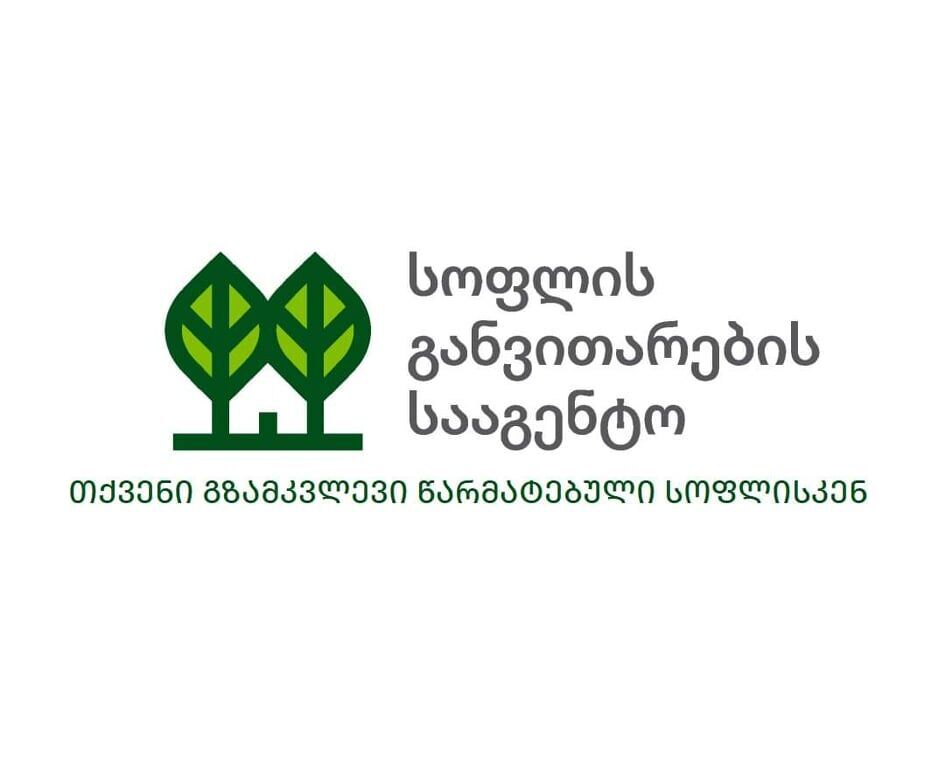
The harvest from gardens co-financed under the state programs is successfully exported to Germany and the United Arab Emirates
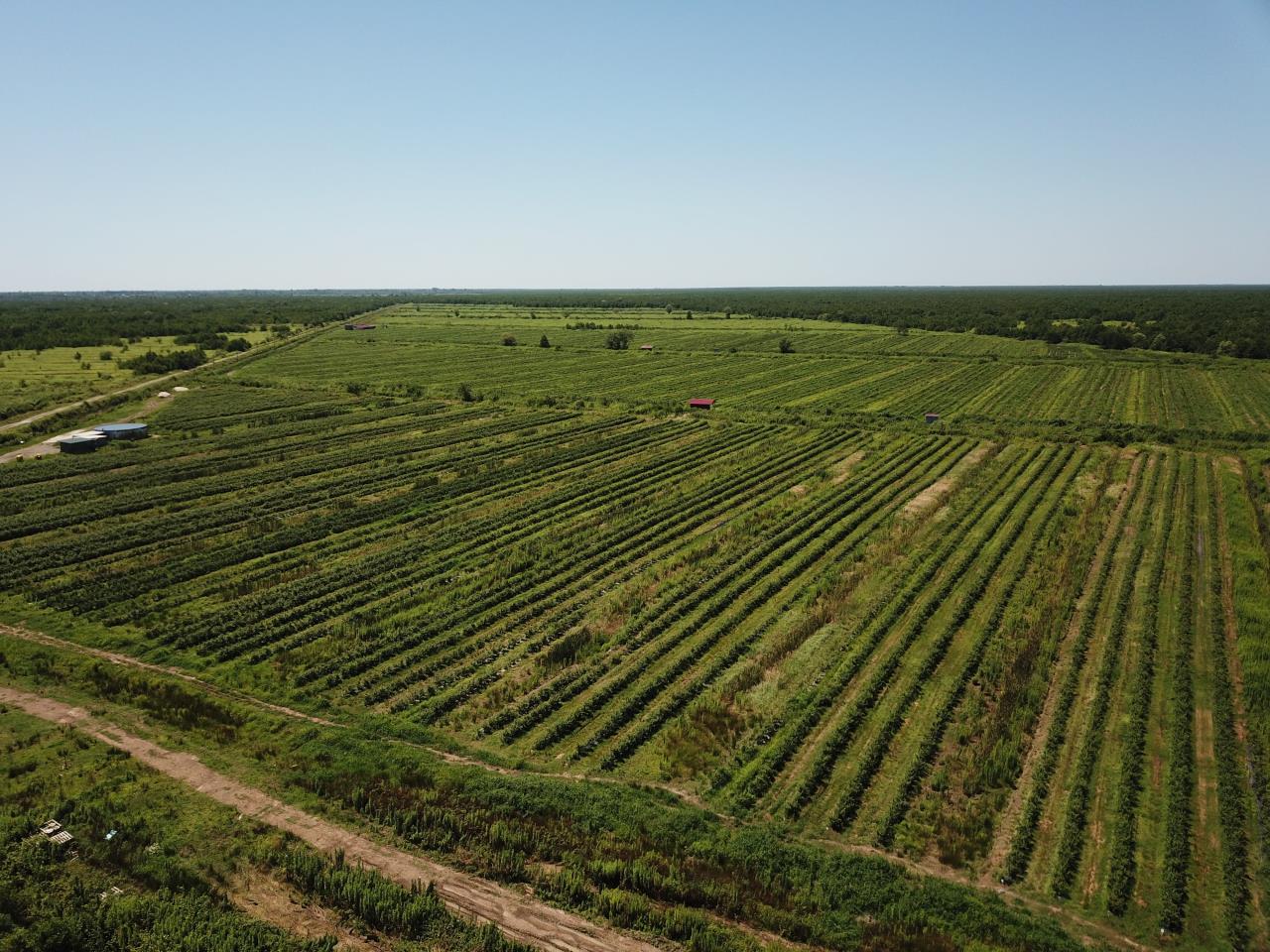
With the financial support of the state, the company “Golden Farms” planted a garden of blue blueberries on 16 hectares and arranged refregirated farming
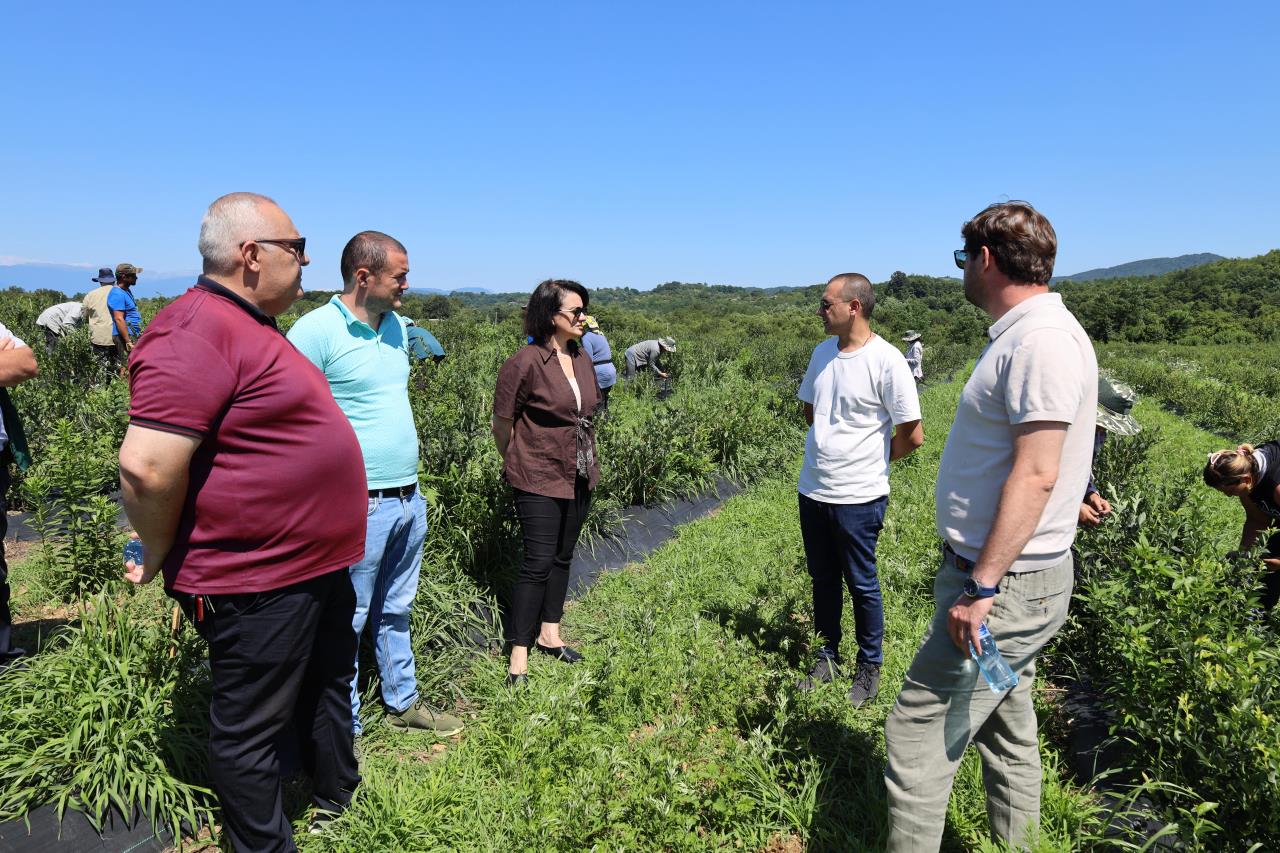
In Senaki Municipality, Rural Development Agency financed the planting of the blue blueberry garden and the creation of the cold farming
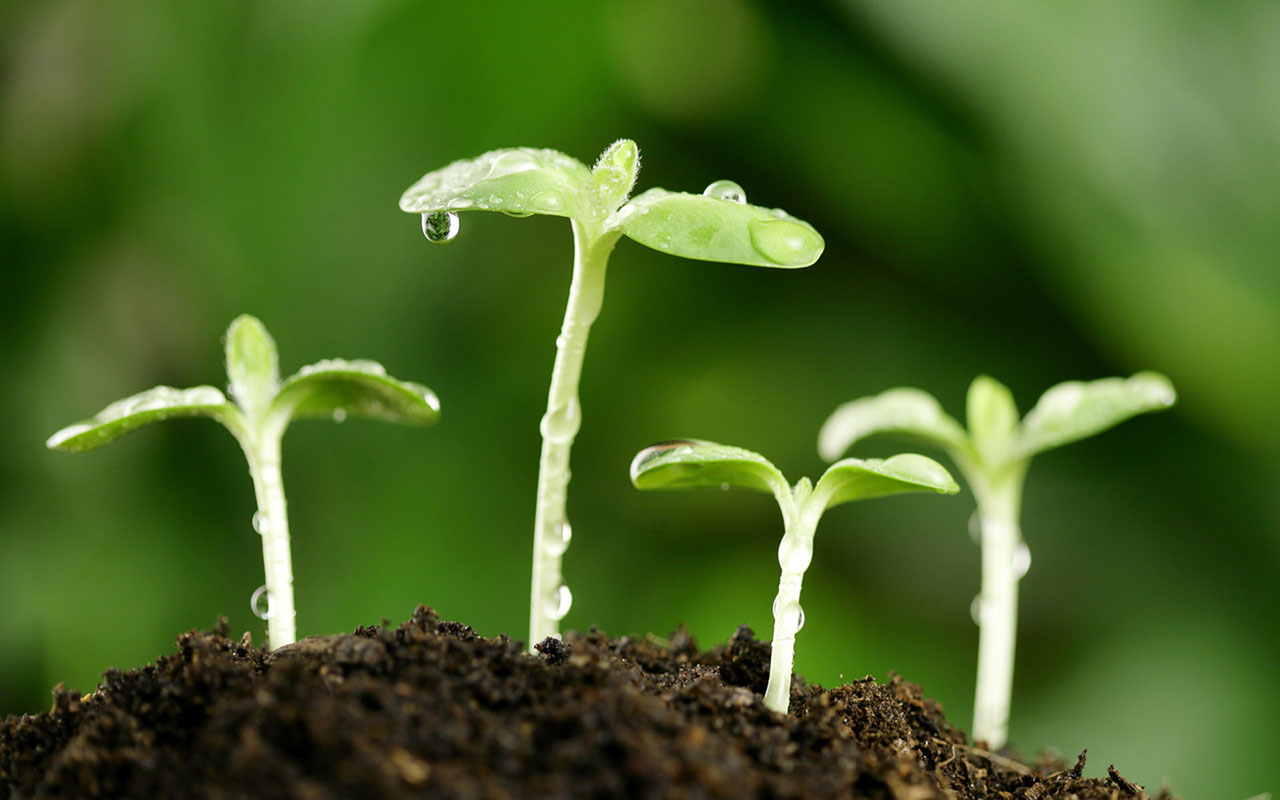
Receiving applications in the program "Plant the future" for the co-financing component of perennial gardens are accepted from October 30

Blueberry orchard planted with the programs of the Rural Development Agency - "Agroveli" company
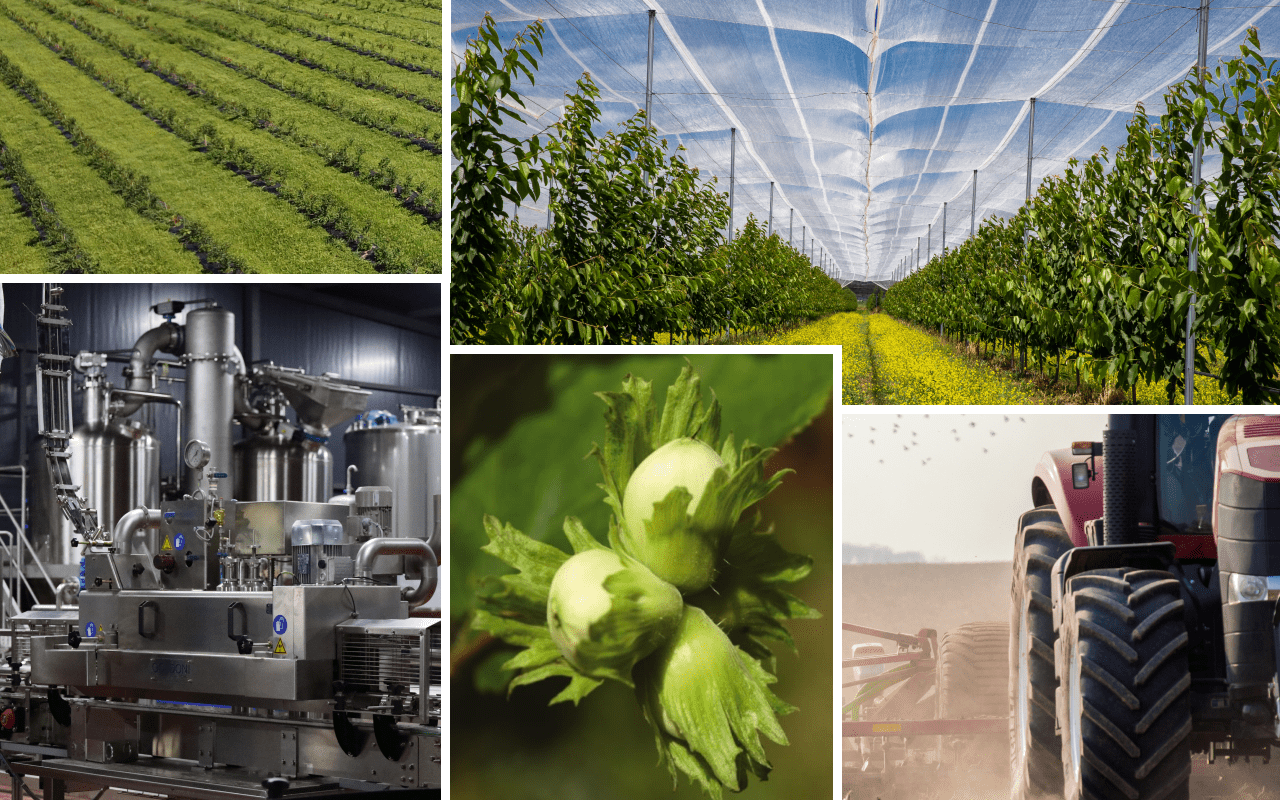
2024 Results of the Rural Development Agency
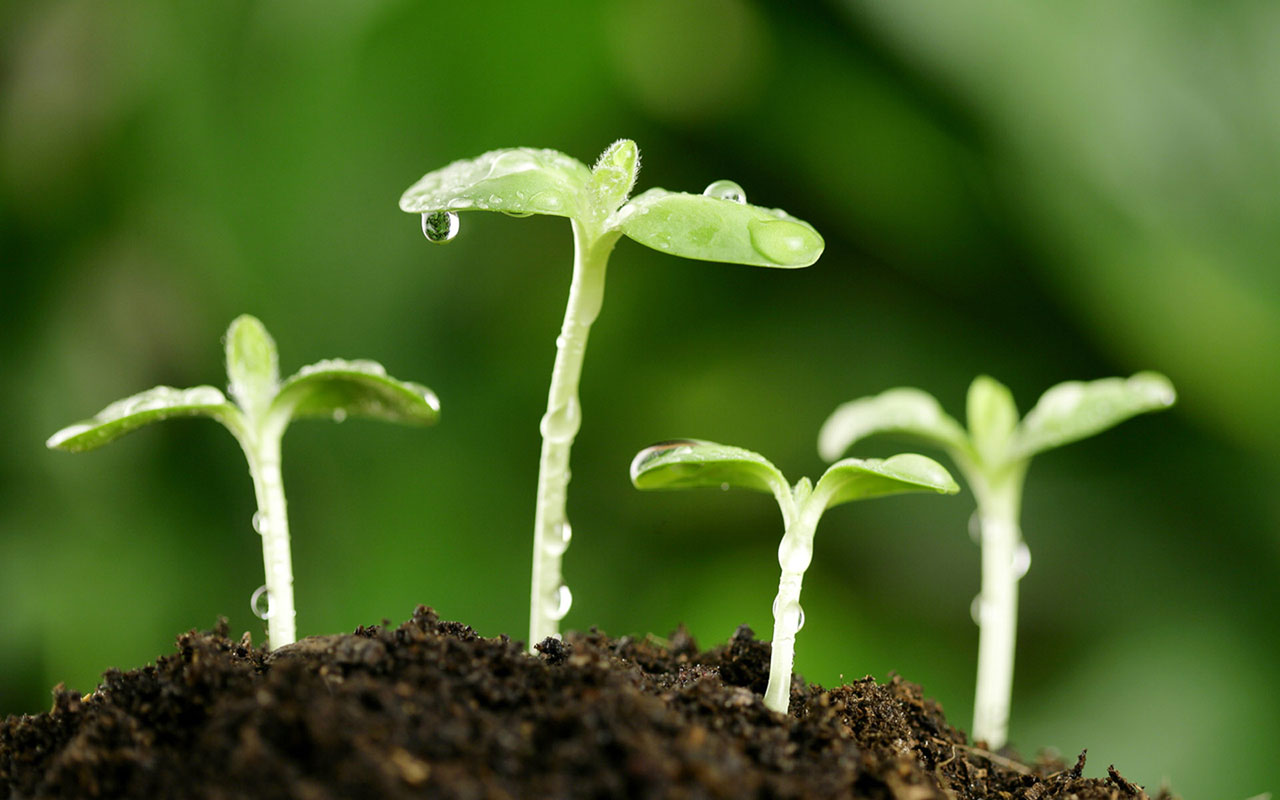
Plant The Future
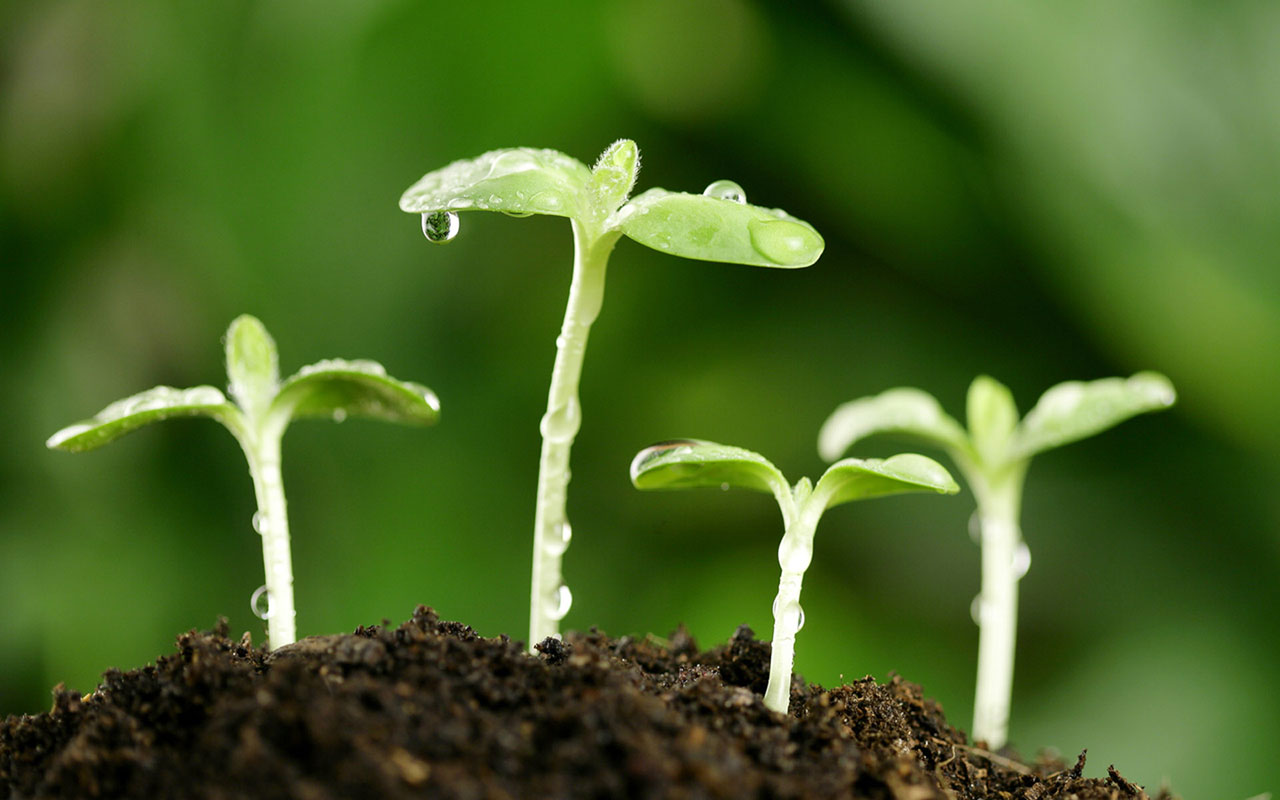
As part of the state program "Plant the Future" in the gardens component, applicants will be able to submit the conclusion on land plot cultivation and water supply until March 14, 18:00
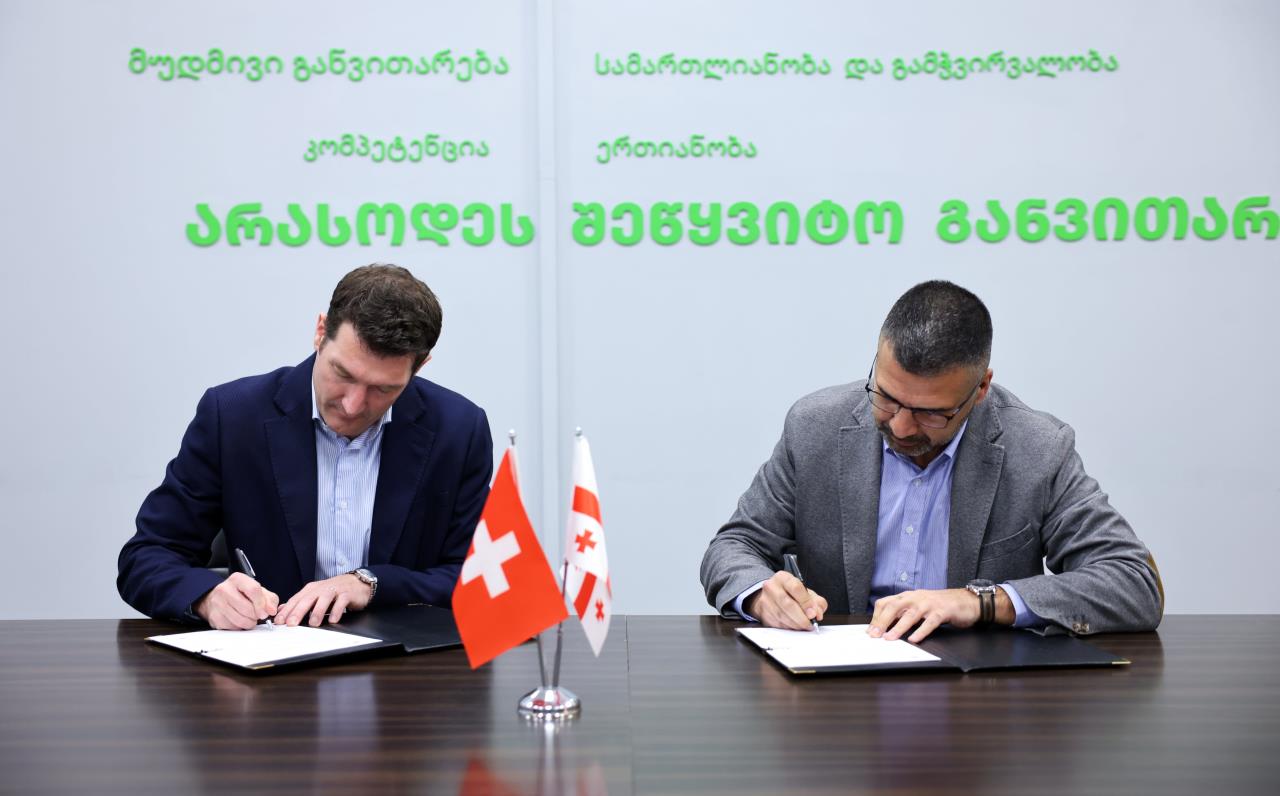
The Rural Development Agency and the Swisscontact Foundation Expand Their Cooperation Scope

Within the framework of the gardens component of the "Implement the Future" program, applications will be accepted from March 24, 2025, at 12:00 PM until March 31, 2025, at 6:00 PM
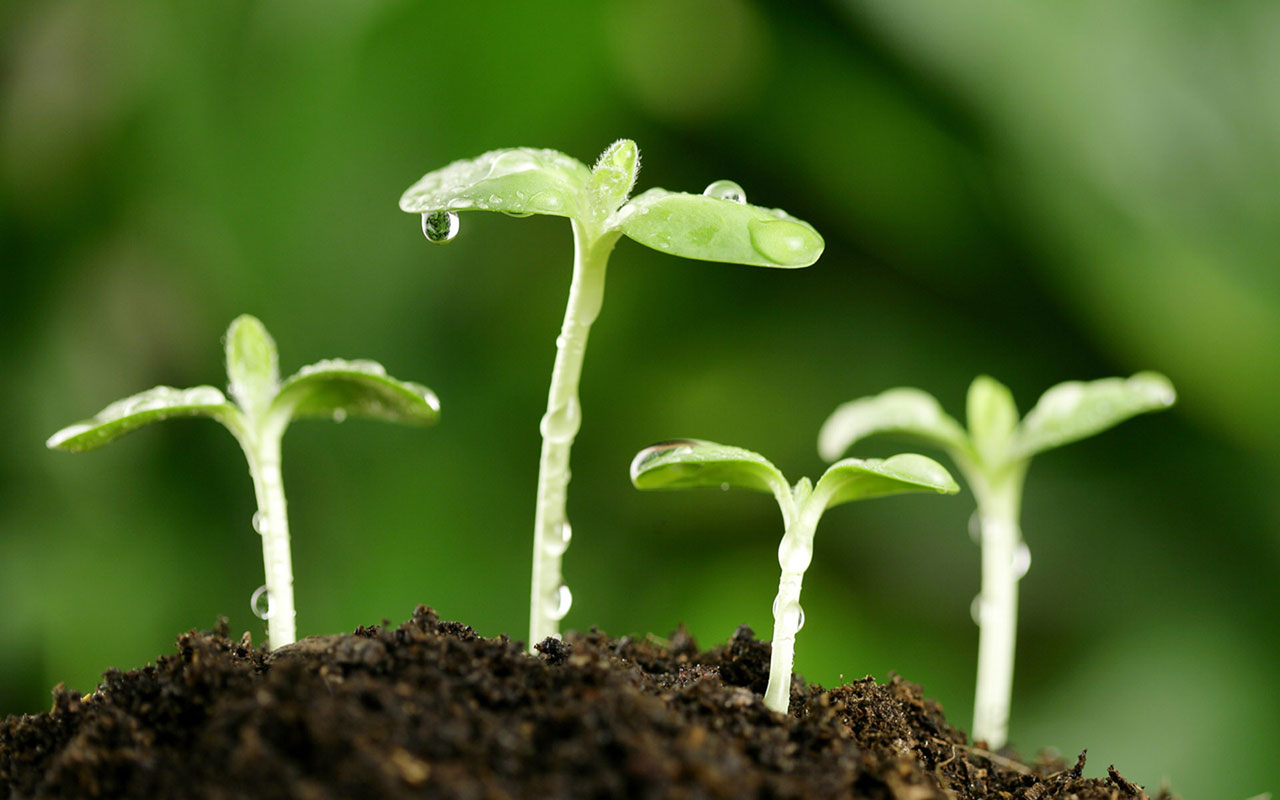
Acceptance of applications for participation in the “Plant the Future” program under the orchards component begins with increased co-financing

Changes to the Technical Assistance Program - TV Program "Maestro Regions"
Success stories
